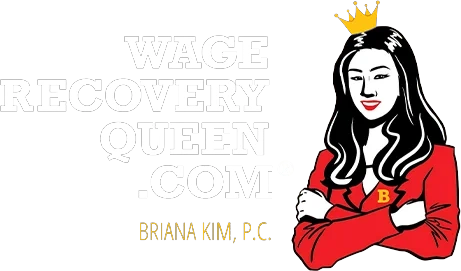Long Beach Retaliation Lawyer

- Passionate
- Perseverant
- Reputable
- Resilient
Long Beach Retaliation Attorney
Retaliation at work in Long Beach and the surrounding areas is a serious employment issue that can have long-lasting negative impacts on workers’ lives. Unfortunately, employees who report illegal activity, exercise their workers’ rights, or fight back against discrimination can find themselves at the receiving end of retaliation from employers. If you are being subjected to retaliation at work, a Long Beach retaliation lawyer from Briana Kim, PC, is here for you.
Workers who are subject to retaliation need a skilled Long Beach retaliation lawyer to fight for their rights and secure justice. Briana Kim, PC, has years of experience fighting for workers in Long Beach and the surrounding areas, including Orange County and Los Angeles County, advocating for employees who are punished for standing up for what is right. Together, we can hold your employer accountable for their wrongful behavior.
What Is Workplace Retaliation in California?
In California, workplace retaliation happens when an employer takes negative action against an employee for speaking up or exercising their legal rights. This can include reporting discrimination, harassment, unsafe working conditions, or wage violations, or participating in an internal or government investigation.
Identifying Workplace Retaliation in Long Beach, California
Workplace retaliation occurs when an employer takes adverse action against an employee for engaging in a legally protected activity. Examples of protected activities include reporting or opposing illegal workplace behavior, such as unsafe working conditions, harassment, discrimination, or wage and hour violations.
Protected activities can also include participating in an investigation against a company or employer, filing a complaint, or exercising rights granted by employment laws. Retaliation can take many forms, such as patterns of behavior that create a hostile work environment, being demoted or paid less, receiving a negative performance review, having your former job duties reassigned or eliminated, or even being fired.
Main Legal Elements of a Retaliation Claim
To file a workplace retaliation claim in California, certain legal elements must be present. Whether a workplace retaliation claim must be filed first with a relevant government agency or in state or federal court depends on the specific nature of the case.
An experienced Long Beach retaliation lawyer from Briana Kim, PC, can analyze your case with you and help you understand whether it includes the following:
- Protected activity. The worker must have engaged in a legally protected activity, such as filing a complaint of discrimination or harassment, filing a workers’ compensation claim, refusing to perform illegal duties, or taking family or medical leave under the California Family Rights Act (CFRA).
- Adverse action. As a result of the worker engaging in a protected activity, the employer must have taken adverse action against them. Adverse actions can include negative performance reviews, disciplinary action, demotion, or even termination.
- Proof of causality. There must be sufficient evidence showing a clear connection between the worker’s protected activity and the employer’s subsequent adverse action, ultimately showing that the employer retaliated against the employee’s legal actions.
- Defenses. Employers sometimes argue that the negative action taken wasn’t retaliation but was due to performance issues, company restructuring, or policy violations. A Long Beach retaliation attorney can help you challenge these claims by gathering evidence, reviewing timelines, and collecting witness statements to show that the adverse action was actually linked to your protected activity.
- Deadlines. California has strict deadlines for filing retaliation claims, and missing them can mean losing your right to pursue a claim. A Long Beach retaliation attorney can guide you through the process, making sure your claims are filed correctly and on time so you don’t miss out on potential remedies.
If you believe that these elements may be present in your case, it is critical to work with an experienced employment lawyer as soon as possible. A knowledgeable and skilled employment attorney from Briana Kim, PC, can analyze your case details and subsequent evidence to help you understand whether you have a legal basis for a retaliation claim. If you have grounds for a legal claim, they can help you act quickly and efficiently to secure your rights and receive compensation.
Examples of Workplace Retaliation in Long Beach, California
Briana Kim, PC, has helped workers in Long Beach and surrounding areas restore justice to their workplace situation after facing various forms of workplace retaliation. For example, we have supported workers in restoring their rights and gaining compensation after they have faced the following:
- Denial of a raise. Employers may exhibit adverse behavior by paying an employee less or denying them a raise they are entitled to as a means of punishing them for standing up against illegal activity or asserting their workers’ rights. For example, this could include refusing to give an employee a deserved promotion after taking leave under the Family and Medical Leave Act (FMLA).
- Poor performance reviews. Employees who consistently receive positive performance reviews can suddenly start receiving negative evaluations as a form of retaliation from their employer for exerting their rights or reporting illegal practices. If you have filed a claim against your employer, for example, due to unsafe working conditions, and are now receiving poor evaluations as a result, you likely have grounds for a retaliation case.
- Demotion or termination. Employees in Long Beach and surrounding areas may be demoted or even terminated in retaliation for engaging in a protected activity, such as filing a workers’ compensation claim after a workplace injury.
- Sudden unfavorable working conditions. Employers may retaliate against employees for their legally protected behavior by assigning them unfavorable shifts or moving them to a less desirable location, hoping this will eventually make them leave the job.
- Reducing hours. Employers may attempt to intimidate workers who have exercised their rights or reported unlawful activity at work by assigning them fewer hours, effectively negatively impacting their income and their ability to provide for their families.
- Unfortunately, some employers may create a hostile working environment due to a pattern of behavior that constitutes harassment. This can include micromanaging the worker, placing them under extreme scrutiny, excluding them from certain activities, and fostering group ostracization.
Although workplace retaliation can take many forms, this activity is strictly illegal. If you believe that your employer may be acting against you in a retaliatory manner, you are entitled to specific protections of your rights and could possibly receive compensation. An experienced employment lawyer from Briana Kim, PC, can help you understand your options moving forward.
Subtle Warning Signs of Retaliation
Workplace retaliation isn’t always easy to spot. Often, the signs are subtle, and employees might not even realize they’re being targeted until the behavior becomes more serious. Some of the common subtle warning signs include:
- Sudden negative performance reviews or criticism after you reported misconduct or participated in an investigation
- Exclusion from meetings, projects, or opportunities you were previously involved in
- Unexpected changes in responsibilities or work schedule without a clear explanation
- Increased scrutiny or micromanagement from supervisors after engaging in a protected activity
- Unexplained disciplinary actions that appear disproportionate compared to prior treatment
Catching these subtle warning signs gives you the chance to document what’s happening, preserve important evidence, and take the right steps to protect yourself. At Briana Kim, PC, our team helps employees recognize retaliation and understand their rights under California law so they can take strong legal action.
Protections Afforded to California Employees Against Workplace Retaliation
Under both California state and federal law, workers enjoy various protections and rights that they can exercise without fear of workplace retaliation. These statutes are in place to ensure better working conditions, where employees can report illegal activity and enjoy the full extent of the rights they have been granted. Under various legal frameworks, employers are protected from retaliation when they engage in the following activities:
- Filing a legal claim, or complaint. Workers who file complaints or pursue litigation as a result of illegal workplace activity, including unsafe work conditions, wage or labor violations, or harassment, are protected from retaliation.
- Reporting harassment or discrimination. Under Title VII of the Civil Rights Act and the California Fair Employment and Housing Act (FEHA), workers cannot be retaliated against for reporting harassment or discrimination based on protected characteristics, such as disability, medical condition, race, sex, religion, gender, or age.
- Taking medical or family leave. Under the federal Family and Medical Leave Act (FMLA) and the California Family Rights Act (CFRA), workers have the right to take unpaid, protected leave for certain circumstances involving their own health or that of their close family members, including maternity and paternity leave. Under this framework, it is unlawful for an employer to retaliate against an employee for taking or requesting this leave.
- Participating in workplace investigations. Workers who participate in investigations into certain workplace circumstances, such as those conducted by a government agency or the employer, cannot be retaliated against for providing truthful information. Participation can include providing testimony or evidence to support a coworker’s complaint.
- Whistleblowing. Whistleblowing is the reporting of certain illegal activities, such as environmental violations, unsafe working conditions, or fraud (e.g., improper Medicare billing), to law enforcement, a person within the employer who has authority to investigate, or a relevant government agency. Workers who participate in whistleblowing activities are protected under the law from retaliation by their employer.
- Reporting violations of wage and hour laws. California labor laws and the Fair Labor Standards Act (FLSA) protect employees who report violations of wage and hour laws. Such violations can include denial of adequate rest or meal breaks, misclassification of an employee as an independent contractor or a salaried, exempt employee, and unpaid minimum wage or overtime.
- Refusing to engage in illegal behavior. If an employee refuses to engage in illegal activity, such as forging documents or discriminating against a client or coworker, they are protected under the law from retaliation.
If you or a coworker has taken part in any of these legally protected activities and believes your employer has exhibited behavior that constitutes retaliation, it is critical to work with compassionate and skilled legal counsel. Briana Kim, PC, can work with you to secure your rights and seek justice in the situation.
How to Prove a Retaliation Case
Proving a retaliation case requires keeping detailed records, establishing clear timelines, and identifying credible witnesses. Focusing on the right things from the start gives you the most favorable chance of protecting your rights. You can do this by:
- Keeping copies of emails, messages, performance reviews, and any complaints you made
- Identifying coworkers who observed retaliatory behavior
- Establishing timelines to show the connection between your protected activity and the adverse action
- Preserving pay stubs, schedules, and personnel documents
At Briana Kim, PC, our attorneys work closely with clients to make sure every detail is documented and every legal option is explored to achieve a positive outcome.
Practical Steps to Take Now
If you think you might be facing retaliation at work, acting quickly can help protect your rights and strengthen any future claim. Knowing what to do right away gives you more control over the situation, and some key steps include:
- Notify your supervisor, HR department, or designated company contact about the issue.
- Depending on your situation, you can file a complaint with the Civil Rights Department (CRD) or the Equal Employment Opportunity Commission (EEOC).
- Don’t confront your employer about the retaliation without legal guidance.
- Contact a Long Beach retaliation attorney as soon as possible to review your case and advise on your next steps.
At Briana Kim, PC, our team is committed to helping employees respond strategically to retaliation so they can pursue the justice they deserve.
Hire a Retaliation Lawyer and Create a Strong Case for Your Workplace Retaliation Claim
To successfully hold your employer accountable for their behavior and receive compensation for your retaliation case, it is critical to have a strong claim backed by sufficient evidence. An experienced retaliation lawyer from Briana Kim, PC can help you take concrete steps to implement a strong legal strategy to hold your employer accountable.
Our firm can assist you in keeping detailed records of your involvement in a protected activity, such as taking CFRA/FMLA leave, baby bonding leave, requesting medical accommodations, requesting payment for all hours worked, or reporting illegal activity to a government agency. We can help you retroactively collect relevant documentation, such as written complaints or emails.
Adverse Actions
When it comes to adverse actions taken against you by your employer, it is critical to have robust documentation of this activity. We can help you collect evidence of retaliation, including poor performance reviews, payment slips showing lower wages or fewer hours, and termination notices. After all evidence has been collected, we can help you map out a timeline to show a causal connection between your protected activity and retaliation.
We can also interview supervisors or coworkers in your workplace who may have witnessed the retaliation against you, gathering critical statements that may be integral to strengthening your case. After all the evidence has been collected and a clear causal connection has been demonstrated, we can help you navigate through the complex legal processes required to bring your case to justice and receive the compensation you are entitled to.
Compensation You May Be Entitled to in a Workplace Retaliation Case
In addition to receiving legal protections against employer retaliation, victims of workplace retaliation may also be entitled to compensation for subsequent non-economic and economic damages. An experienced Long Beach retaliation lawyer from Briana Kim, PC, can analyze your case details and subsequent damages to help you understand whether you are entitled to the following:
- Lost wages and benefits. Workers who fall victim to workplace retaliation can often recover the income and benefits they would have earned had their employer not taken adverse actions against them. This includes compensation for past wages (back pay), future lost wages (front pay), and benefits missed.
- Job reinstatement. If you were demoted or terminated from your job as a result of retaliatory behavior (e.g., fired after taking pregnancy leave or experiencing pregnancy discrimination), you may be able to be reinstated to the position you had before or one that is equivalent.
- Compensation for emotional distress. Because workplace retaliation can cause serious psychological and emotional damage, employees may be able to obtain compensation in some cases. Emotional distress and mental anguish can be proved through personal logs and statements from mental health professionals.
- Punitive damages. If your employer’s retaliatory behavior was particularly egregious, the courts may decide to give punitive damages to ensure the employer is adequately punished for their behavior and help avoid similar incidents from occurring in the future.
- Legal costs. If a retaliation claim is won, the employer may be responsible for covering the employee’s attorney fees and legal costs.
If you have suffered from workplace retaliation in Long Beach or the surrounding areas, Briana Kim, PC, is eager to help champion your case. We can thoroughly assess the extent of your damages, ensuring your final compensation package adequately reflects all you have lost.
Protect Your Rights and Interests With a Long Beach Retaliation Lawyer
If you are facing adverse actions from your employer by asserting your worker’s rights or fighting back against immoral or unlawful situations, it is crucial to receive skilled and experienced legal support. A Long Beach retaliation lawyer from Briana Kim, PC, understands how damaging retaliation can be on an emotional, financial, and professional level. Contact us today to build up your case and fight back against your employer’s unlawful behavior.




